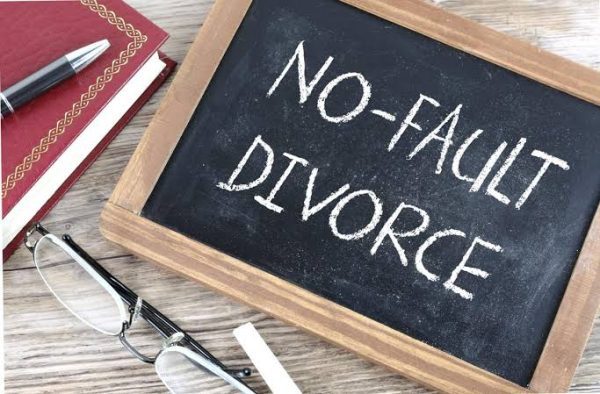
No-Fault Divorce
These days, a lot of couples who decide to end their relationship opt for a certain kind of divorce known as a no-fault divorce.
However, what is a no-fault divorce and how does one obtain one? This blog post outlines the advantages of a No-Fault divorce as well as your options and how it operates.
When you dissolve a marriage, you are required to give a cause or reasons for the divorce. Before now, you had to give a basis for dissolving a marriage, including infidelity or abuse. However, these days, a marriage’s disintegration is sufficient justification for ending it.
A no-fault divorce is one in which the pair wishes to dissolve their union without having to demonstrate that one of them committed a particular wrongdoing as the reason behind it.
When submitting their documents to the court, the party applying for divorce opts for a no-fault divorce. It’s not always the case that one side was at fault in a no-fault divorce. Even if the divorcing spouse was violent, unfaithful, or committed another offense that led to the breakdown of the marriage, the divorcing party may elect for a no-fault divorce.
However, by opting for a no-fault divorce, they avoid having to provide any justification to the judge. Even in cases when one partner’s misconduct caused the marriage to dissolve, the process is quicker, easier, and frequently preferable.
Difference Between a Fault Divorce From a No-Fault Divorce
An alternative to fault-based divorces is no-fault divorces. In the past, fault divorces were commonplace since the courts needed specific types of misconduct before granting a divorce. In order to file for a fault divorce, the party wishing to end the marriage usually needed to provide evidence of a particular fault.
Although the reasons for a fault divorce might differ from state to state, some frequent ones are as follows:
1. Adultery -Desertion or abandonment
2. Neglect
3. Persistent intoxication
4. Conviction for a felony and/or imprisonment
5. Insanity that cannot be cured or that requires placement in a mental health facility
6. Inhumanity
Covenant Marriage and No-Fault Divorces
Even though they are relatively common and widely available, there are several circumstances in which a no-fault divorce could not be achievable.
A small number of states allow for covenant marriages, in which the couple makes the commitment to live together forever and is subject to a distinct divorce law.
When two people get married under a covenant, they might not be able to have a no-fault divorce; instead, they might only be able to dissolve their marriage under certain circumstances, like adultery, abuse, criminal convictions, abandonment, or living apart for a while.
In order to restrict their divorce possibilities, couples who choose to enter into a covenant marriage may also need to complete pre-marital counseling before they can file for divorce.
Justifications for a No-Fault Divorce
While North Carolina is among the states that recognize no-fault divorce grounds, there are regional variations in the nomenclature used to describe this kind of marital breakdown.
A no-fault divorce could be granted on the following grounds, for instance:
1. An irreversible breakdown in the marriage
2. Differing viewpoints
3. Incompatibility
Before granting it, spouses in North Carolina are required to live apart for a certain amount of time.
The No-Fault Divorce Process
It is necessary to follow your state’s guidelines and provide the appropriate documentation to the court in order to obtain this kind of divorce. The court in the county where you and/or your spouse reside is often the one where you must petition for divorce if that is the court with jurisdiction over the matter.
A knowledgeable divorce lawyer will help you make sure the right paperwork is filed with the court and that you comply with state-specific rules, including waiting periods, process serving, and submitting any further paperwork needed, such a parenting plan.
You may make sure that it goes as fast and efficiently as possible and that your rights are upheld by working with a divorce lawyer.
Frequently Asked Questions About No Fault Divorce
1. What is a No-fault divorce?
In this kind of divorce, neither party must provide evidence of wrongdoing on the part of the other spouse. It frequently rests on the grounds of separation in North Carolina.
2. What circumstances qualify a North Carolina no-fault divorce?
The basic basis for it in North Carolina is the intention to live apart and separately for a minimum of one year, with the goal of remaining permanently separated.
3. In a no-fault divorce, do I have to establish my guilt?
No, that’s what it’s is all about. Neither party has to provide evidence of misconduct. The time spent apart is the main subject.
4. How long after divorcing one another may a couple file for a no-fault divorce?
The conditions for it in North Carolina must be met by the couple living apart and separately for a continuous period of time equal to or greater than one year.
5. Can we be deemed separated even if we reside in the same house?
Living apart typically entails having different places to live. However, if the spouses maintain separate lives, including financial and sleeping arrangements, then sharing a home might be taken into consideration.
6. Does the divorce require the consent of both partners?
No, the consent of both spouses is not required. One spouse may file for divorce if they feel the requirements for separation have been satisfied. It is subject to challenge by the other spouse, but it does not stop the divorce.
7. Are there alternatives to a no-fault divorce in North Carolina?
Yes, fault-based grounds such as adultery, cruelty, or abandonment are alternatives. However, they require proving fault, which can be more complex.
8. Is legal representation necessary for a no-fault divorce?
While it’s not required, having legal representation is advisable to ensure all legal aspects are handled correctly and to protect your rights

Leave a Reply